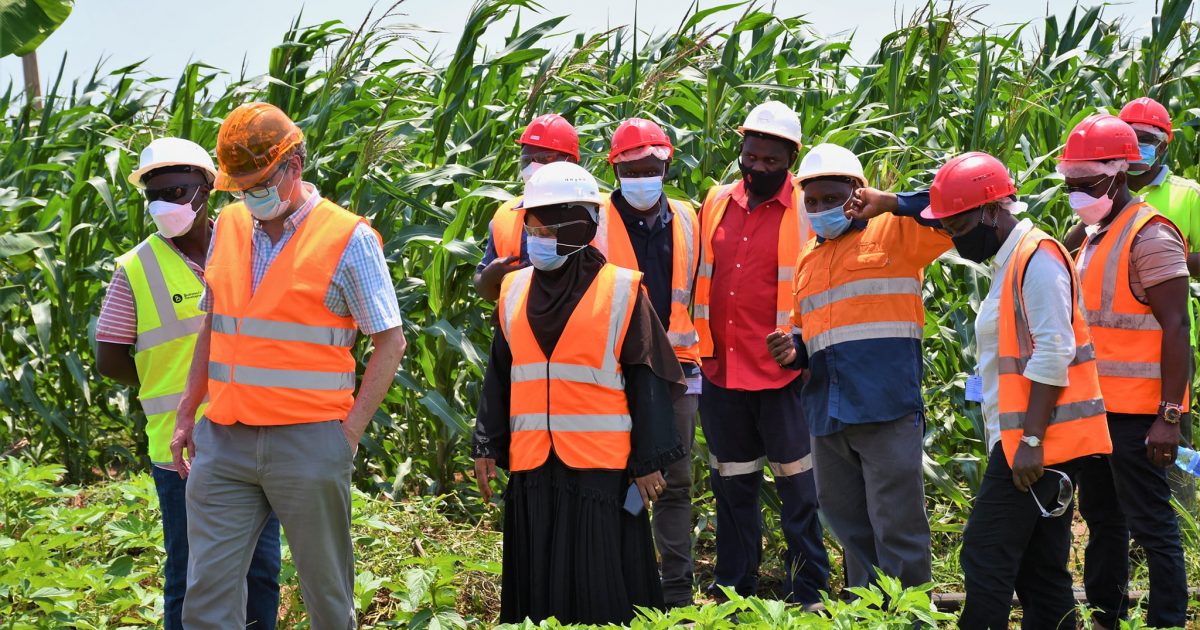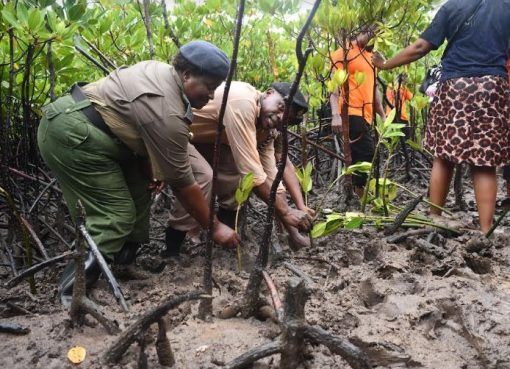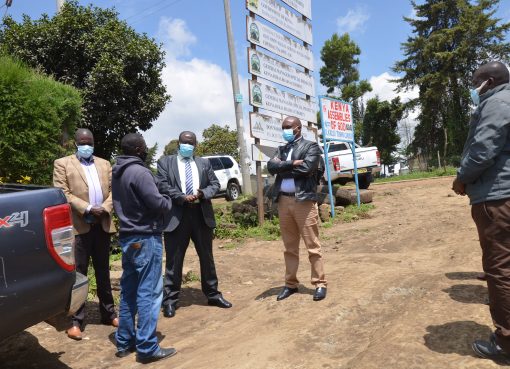The County Government of Nakuru has embarked on promoting the adoption of sustainable agricultural practices such as agroforestry to mitigate the effects of climate change.
The devolved unit has also scaled up its investments in renewable energy sources, particularly solar, to help reduce greenhouse emissions and promote sustainable energy.
According to the Chief Officer in Charge of Environment, Climate Change, and Natural Resources, Mr. Kennedy Mungai, the County administration was also supporting farmers to receive training on climate-smart agricultural techniques, to enable them to enjoy increased crop and animal yields despite their environmental conditions.
Mungai said the farmers were being equipped with the new techniques, including conservation agriculture, integrated pest management, the use of drought-resistant crop varieties, drip irrigation, water harvesting, and promoting sustainable livestock practices like rotational grazing.
“In tandem with these capacity-building initiatives, communities have been supported to access farm inputs, establish thriving kitchen gardens, and acquire small animal stock like goats and chickens. These endeavours bolster household food security, nutrition, and income levels,” Mungai added.
The Chief Officer disclosed that the County Government and its partners were working with communities to facilitate the reseeding of degraded rangelands so as to increase the availability of livestock pasture, protect the revived rangelands, and promote their sustainable use so as to avert any destruction.
“It’s not only human beings that are feeling the effects of climate change but also wildlife; the ecosystem and livestock have been affected,” Mr. Mungai said.
For the long term, the Chief Officer indicated that Governor Susan Kihika’s administration had started a vigorous tree planting and nurturing campaign to increase the County Forest cover in line with the country’s vision of increasing forest cover to 30 per cent by 2032.
While acknowledging that planting fruit trees had additional benefits as sources of food, the CECM explained that trees produce oxygen needed by living things in addition to providing protection for birds and mammals and reducing the amount of stormwater runoff, which in turn reduces erosion and pollution in waterways.
Speaking in Molo when he inaugurated a two-day workshop of agricultural sector stakeholders aimed at addressing impacts of climate change, Mr. Mungai indicated that the main focus of his department for the next five years will be climate change mitigation and adaptation, with a clear emphasis on green energy, water resource management, and unexploited opportunities brought by climate change.
“We aim at ensuring that Nakuru becomes a county with low carbon emissions and achieves a climate-resilient economy that sustains the livelihoods of its residents while contributing to the national development agenda. Our objectives revolve around food and water security, environmental conservation, green energy, and sustainable financing, among others,” said the Chief Officer.
The workshop that was organized by the County Government in collaboration with the Arid Lands Information Network (ALIN) was also attended by the Director of Environment and Climate Change, Ms. Grace Karanja, as well as county and sub-county environment officers and administrators.
At the same time, Mr. Mungai regretted that there was enough evidence of climate change in Nakuru; a challenge he noted was systematically erasing the county from the list of top food baskets in the country.
He said the County was experiencing prolonged drought, extreme precipitation, and the risk of flooding, which he noted had been increasing with the long rainy seasons becoming shorter and drier, while the short rainy seasons were turning longer and wetter, resulting in the floods.
He added that the devolved unit was, as a result, building the resilience of communities to climate change by constructing or upgrading water infrastructure so as to enable families to enjoy clean and safe piped water all year round, even in times of drought.
The County, he added, was also nurturing a generation of youth environmental conservation champions who will leave no stone unturned in their pursuit of climate change mitigation and adaptation, a move he said was aimed at fostering a legacy of environmental stewardship.
By Esther Mwangi and Sam Karanja





